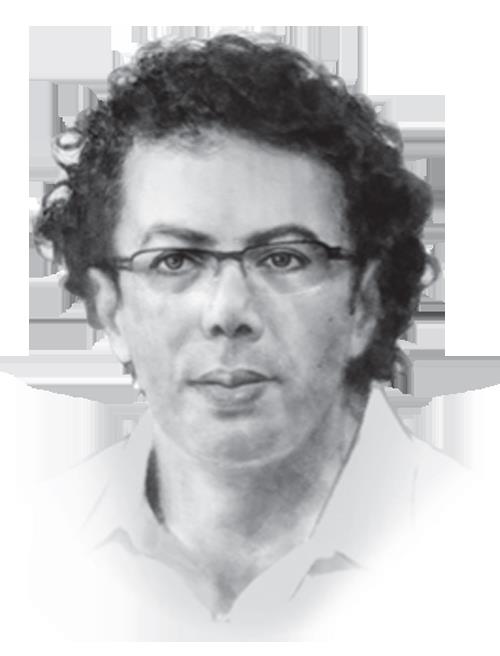
Ihave seen this tragedy before. As a young UN planner in the late 1980s, I helped design the relief operation after the Soviets withdrew from Afghanistan. More than a decade later, as head of the UN Development Programme, I led early relief and reconstruction efforts after the fall of the Taliban. In both cases, the fragile peace that followed conflicts was undermined by key actors in the international community, who stood back or actively opposed when their assistance was needed. The US armed the opposition to the government the Soviets left behind; and when a US-backed government then took power after 9/11, it faced opposition from America’s Asian rivals.
Twenty years later, the question is whether we are seeing a similar story – with Russia, China and Pakistan recognising the new government of Afghanistan and offering their support for reconstruction, while the US, the UK and other European governments hold back.
This is a moment when a moribund UN security council could recover real global leadership and spell out a united way forward. One that trades the political and humanitarian support of the international community for a process of reconciliation between the Taliban and other groups. There would have to be undertakings from the Taliban to respect human rights in a way that the UN would be empowered to monitor and verify. The political basis for this is that everybody from China to the US has a shared interest in a stable, well-governed Afghanistan that does not revert to exporting terrorism.
Regrettably, the first effort from the security council – a press statement, not a resolution, agreed and issued on Monday – entirely fails the challenge. The language includes a call for a ceasefire; for negotiations on the future of the country; for the creation of a new government that is “united, inclusive and representative – including with the full, equal and meaningful participation of women”; and for access to humanitarian aid across the country. These are important principles, but they remain abstract.
What we need now from the security council is clear action to implement these principles in a manner that addresses the immediate crisis. The security council could act immediately to strengthen the role of the UN Assistance Mission in Afghanistan (UNAMA), which already has staff in offices not just in Kabul but across the country. Instead, the security council intends to wait till September and exhibits little of the urgency or ambition that is needed.
A new mandate should include giving UNAMA the responsibility for establishing humanitarian corridors across the country, and the resumption of the evacuation of those most at risk that was cut short on the Taliban’s seizure of the capital. UNAMA can also be given the responsibility for on-the-ground human rights monitoring and reporting, that will shine some light on how the Taliban are living up to their public commitments not to revenge themselves on the defeated – and to respect the advances women have achieved in the last 20 years.
The security council will also need to reaffirm and expand funding for the mission’s role as coordinator of a broad humanitarian response. It is obviously not clear that the Taliban will respect this UN role, having shown contempt for international pressure in the past. But it is clear that we need to test their promises that this time things will be different, rather than simply offering blanket opposition to the Taliban from day one. The Taliban’s spokesman has promised “no vengeance” and spoken of the inclusion of non-Taliban members in the new government. The international community is bound to do everything possible to salvage what it can from this worst of situations.
The humanitarian situation within Afghanistan remains grim. Even before this summer’s Taliban offensive, nearly half of the country’s people were in urgent need of life-saving assistance. One in 10 Afghans have been displaced from their homes. The NGOs who have spent the past two decades working in these communities with dedication have been forced to curtail or shut down their operations. Just under 40% of the funds needed to support the UN’s humanitarian response this year have been committed. And at present, for their own security, UN staff have also been forced to keep a low – and therefore less than fully effective – profile.
What is agreed to in Afghanistan itself must be matched by a generous and large-scale refugee programme that the US and others provide the places for – and the Taliban allow. For many who worked with the US and other partners or who promoted human rights, the Taliban, even on their best behaviour, remain a mortal risk. The US is readying to be generous and Canada has agreed to take 20,000 people, as has the UK over five years. We need more commitments, particularly from countries that have invested so much in Afghanistan over the past two decades. They must not leave their friends behind.
The international community owes it to the people of Afghanistan to deliver concrete action – to protect individuals and communities at risk, to deliver humanitarian aid, to spell out real consequences for what is at stake for the Taliban. The security council must rise to the occasion and offer the Taliban both carrot and stick.
For the US and its Nato allies there is no escaping the humiliation of defeat; for Russia and China there is the temptation to deepen that humiliation. The odds are we end up once again with a divided security council. But my appeal to old colleagues is that they should live up to the principles of the UN charter: give Afghanistan a fresh start; don’t rerun the old movie.
Mark Malloch-Brown, a former UN deputy secretary general, is president of the Open Society Foundations











